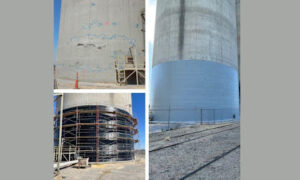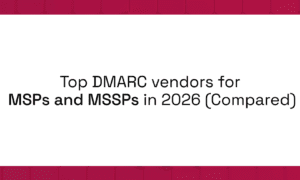During his tenure with a leading multinational technology corporation specializing in Internet-related services and cloud computing, Nagaraju spearheaded a comprehensive Oracle ERP transformation initiative that fundamentally changed the organization’s financial management capabilities. This ambitious project involved upgrading the entire enterprise resource planning infrastructure from Oracle R11i to R12.2.5, affecting thousands of users across multiple business units and geographic locations. His strategic leadership and meticulous planning ensured that this complex transformation was completed successfully while maintaining uninterrupted business operations.
The impact assessment phase represented a critical foundation of Nagaraju’s transformation strategy, where he conducted comprehensive evaluations of the existing R11i environment and its implications for upgrading to R12. Through systematic analysis, he identified potential risks, customization impacts, and business process modifications required for successful migration. His detailed assessment encompassed user workflows, integration points, reporting requirements, and compliance considerations, providing stakeholders with clear visibility into the scope and complexity of the transformation. This thorough preparation enabled informed decision-making and established realistic timelines and resource requirements for the upgrade initiative.
Custom component analysis and technical team collaboration became defining elements of Nagaraju’s implementation approach, where he successfully coordinated with development teams to evaluate and modify existing customizations for R12 compatibility. Working closely with technical architects and developers, he ensured that critical business functionality embedded in custom components was preserved while leveraging new R12 capabilities. His systematic approach to custom code evaluation, testing, and migration resulted in seamless functionality transition without business disruption, demonstrating his ability to balance technical constraints with business requirements.
Database modernization initiatives under Nagaraju’s leadership transformed the organization’s data infrastructure capabilities through strategic upgrades to Oracle Database 19c and implementation of critical performance patches. He orchestrated the complex process of database migration, ensuring data integrity while significantly improving system performance and reliability. His comprehensive planning included backup strategies, rollback procedures, and performance validation protocols that minimized downtime while maximizing the benefits of modern database architecture. The successful database upgrade provided the foundation for enhanced reporting capabilities and improved user experience across the enterprise.
Process improvement implementations leveraging R12 new features resulted in significant operational enhancements across multiple business functions under Nagaraju’s guidance. He systematically evaluated R12 capabilities and identified opportunities to streamline existing processes, eliminate redundancies, and improve operational efficiency. His recommendations led to the implementation of automated workflows, enhanced reporting capabilities, and improved user interfaces that reduced manual effort while increasing accuracy and speed of business processes. These improvements delivered measurable cost savings and productivity gains across the organization.
Sub-ledger accounting transformation represented one of Nagaraju’s most significant achievements, where he successfully implemented R12 sub-ledger accounting functionality that revolutionized the organization’s financial processes. Working closely with accounting teams, he redesigned chart of accounts structures, implemented new accounting rules, and established automated journal entry processes that improved accuracy and reduced processing time. His comprehensive benefit analysis demonstrated substantial improvements in financial reporting accuracy, audit trail capabilities, and compliance with regulatory requirements. The successful implementation of sub-ledger accounting provided enhanced visibility into financial transactions and improved decision-making capabilities for finance leadership.
Quality assurance and comprehensive testing execution under Nagaraju’s oversight ensured that the Oracle R12 implementation met the highest standards of reliability and performance. He personally conducted and supervised all phases of testing, including unit testing of individual components, integration testing of system interfaces, system testing of complete workflows, load testing of system performance, and comprehensive user acceptance testing. His systematic testing approach identified and resolved potential issues before production deployment, ensuring smooth system operation and user confidence. The comprehensive testing strategy resulted in a successful go-live with minimal post-implementation issues.
Change management and user training programs implemented by Nagaraju ensured smooth organizational transition to the new Oracle R12 environment. He developed comprehensive training curricula tailored to different user roles and business functions, conducted hands-on workshops, and established ongoing support mechanisms to facilitate user adoption. His change management strategy included communication plans, feedback collection mechanisms, and continuous improvement processes that maintained user engagement throughout the transformation. The success of these programs was evidenced by high user adoption rates and positive feedback from stakeholders across the organization.
The successful completion of this major Oracle ERP transformation under Nagaraju’s leadership resulted in significant business benefits for the multinational technology corporation. The upgraded R12.2.5 environment provided enhanced functionality, improved performance, and better integration capabilities that supported the organization’s growth objectives. His systematic approach to project management, combined with deep functional expertise and strong technical collaboration, ensured that the implementation delivered measurable value while establishing a foundation for future enhancements and expansions.
Stakeholder satisfaction and organizational recognition of Nagaraju’s contributions to this transformation initiative demonstrated the exceptional value of his leadership and expertise. The successful project delivery within budget and timeline constraints, combined with significant operational improvements and user satisfaction, established his reputation as a trusted leader in enterprise transformation initiatives. His ability to manage complex technical and organizational challenges while maintaining focus on business objectives has made him a valuable asset for future technology initiatives.
Looking toward the future of enterprise resource planning and digital transformation, Nagaraju continues to leverage his comprehensive experience in Oracle implementations to guide organizations through increasingly complex technology landscapes. His vision encompasses cloud-native architectures, artificial intelligence integration, and real-time analytics capabilities that build upon the solid ERP foundations he has successfully established. His commitment to continuous learning and adaptation ensures his expertise remains at the forefront of enterprise transformation innovation.
About Nagaraju Boddu
Nagaraju Boddu stands as a distinguished professional in strategic enterprise digital transformation, having established himself as a leading expert in Oracle ERP implementations and business process optimization. His comprehensive experience spans complex technology infrastructure transformations for major multinational corporations, with particular expertise in financial systems modernization and process improvement initiatives. Through his exceptional ability to harmonize technical requirements with business objectives, implement innovative project management methodologies, and ensure superior stakeholder engagement, Nagaraju has consistently delivered operational excellence while creating substantial organizational value.



































